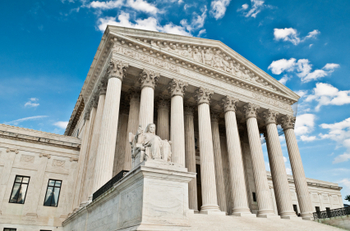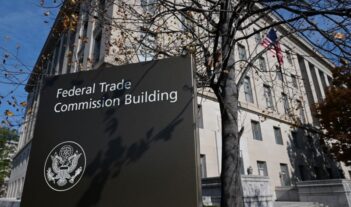
Dispute over teeth-whitening regulations may expand federal antitrust authority over states.
The Federal Trade Commission (FTC) states that the purpose of antitrust law is to promote “aggressive competition” and “free and open markets.” However, non-antitrust regulations often limit competition to promote other policy considerations. Some observers express concern that special interest groups can hijack regulatory policy for their own ends, such as preventing market entry. Public choice economists describe this as “regulatory capture.”
Professional licensing embodies these tensions. Licensing inherently restricts competition, but purportedly does so to promote higher quality and safety standards. Practicing professionals often serve as the leaders of licensing organizations, such as state bar associations and medical boards. These professionals have the advantage of specialized expertise, but also a financial incentive to restrict entry.
Because states make most licensing decisions, federal antitrust authorities traditionally have played a limited role over it. The FTC primarily has influenced the licensing process through policy recommendations, often issued at the request of state officials.
In a recent speech before the Connecticut Bar Association on antitrust in the healthcare market, FTC Commissioner Maureen Ohlhausen explained her agency’s approach. She noted that the FTC is not concerned with judging a “state’s own health and safety priorities,” but it opposes regulation that “targets specific businesses or business models rather than particular and well-founded consumer risks.” For example, the agency recently expressed support for a proposed law in Massachusetts which would enable nurse practitioners to render unsupervised services that are currently limited to doctors. On the other hand, the FTC opposed a proposed Kentucky regulation that would have allowed nurse practitioners at retail clinics to operate at sports camps but not at schools.
In most situations, the agency only has persuasive power to impede anti-competitive state regulations. The 1943 Supreme Court decision Parker v. Brown established antitrust immunity for state actors even if identical private conduct would be prohibited. In 1980, the Court refined this doctrine in California Liquor Dealers v. Midcal Aluminum by limiting states from granting immunity to private actors when the state both clearly articulates and actively supervises the anti-competitive behavior.
The upcoming Supreme Court case may establish a broader definition of private actors to include some state agencies. The North Carolina legislature created the dental board as an “agency of the State for the regulation of the practice of dentistry in [the] State.” It consists of six dentists, one hygienist, and one consumer advocate. Licensed dentists elect the six dentist members of the board.
The Board issued a number of cease-and-desist letters against cosmetologists and other non-dentists who offered teeth-whitening services, accusing them of the “unauthorized practice of dentistry.”
In 2010, the FTC issued a complaint against the dental board, alleging that, “reacting to the competitive threat posed by non-dentist providers,” it “sought to exclude, and did exclude, non-dentists from the market for teeth whitening services” in violation of the Section V of the FTC Act.
In 2011, the Commission ruled against the North Carolina dental board; the Fourth Circuit Court of Appeals upheld the decision in 2013. The court agreed with the FTC that “in function, the board was a private actor ‘organized primarily for the benefit of those engaged in the business.’” It found that because no North Carolina executive or judicial officials approved or oversaw the sending of the cease-and-desist letters, the dental board failed Midcal’s “active supervision” requirement.
The state dental board filed a petition to the Supreme Court last October. It characterized the Fourth Circuit’s decision as abandoning “70 years of precedent” on state action immunity. It noted that, in addition to the powers of a traditional agency, the dental board also has the accompanying obligations, such as ethical and disclosure rules, that private actors do not. It also argued that all branches of North Carolina government scrutinize the dental board to ensure “to determine if [it is] operating in accordance with statutory requirements.” It pointed to earlier decisions by the Fifth and Ninth Circuit that did not require “active supervision” of licensing boards made up of professionals, in cases involving a certified public accounting board and state bar association, respectively.
If the Supreme Court upholds the Fourth Circuit decision, then federal antitrust authorities would acquire jurisdiction over many other state licensing boards. In response to this possibility, major national professional organizations, including the American Dental Association and the American Medical Association, have filed briefs urging the Supreme Court to reverse the decision.
The FTC’s 2011 decision against the dental board was unanimous, and the Fourth Circuit panel included both George W. Bush and Barrack Obama nominees. The progressive American Antitrust Institute filed a brief in favor of the FTC. Though not opining on the ultimate legal question, Emory Law professor Alexander Volokh has described the North Carolina dental board’s structure as a “particularly obnoxious way of giving incumbents the right to decide who their competitors will be.”
However, the dental board’s petition to the Supreme Court includes arguments that may appeal to both conservatives and liberals. The board argues that the Fourth Circuit’s opinion “violates the fundamental principles of federalism” and if upheld would weaken regulatory protections for public health.



